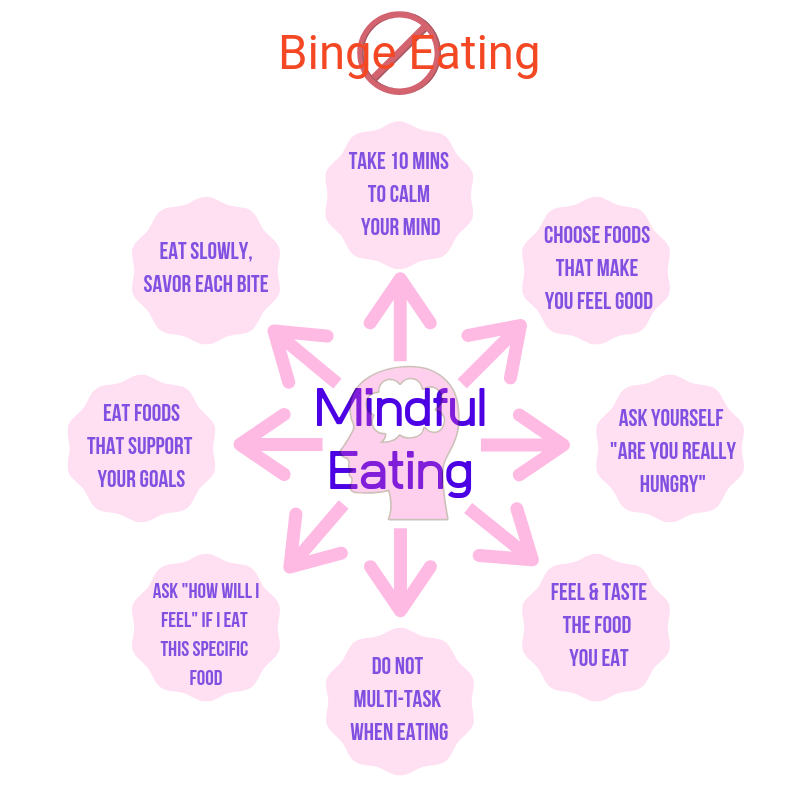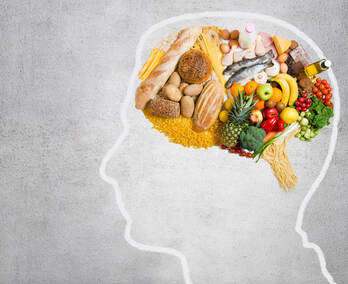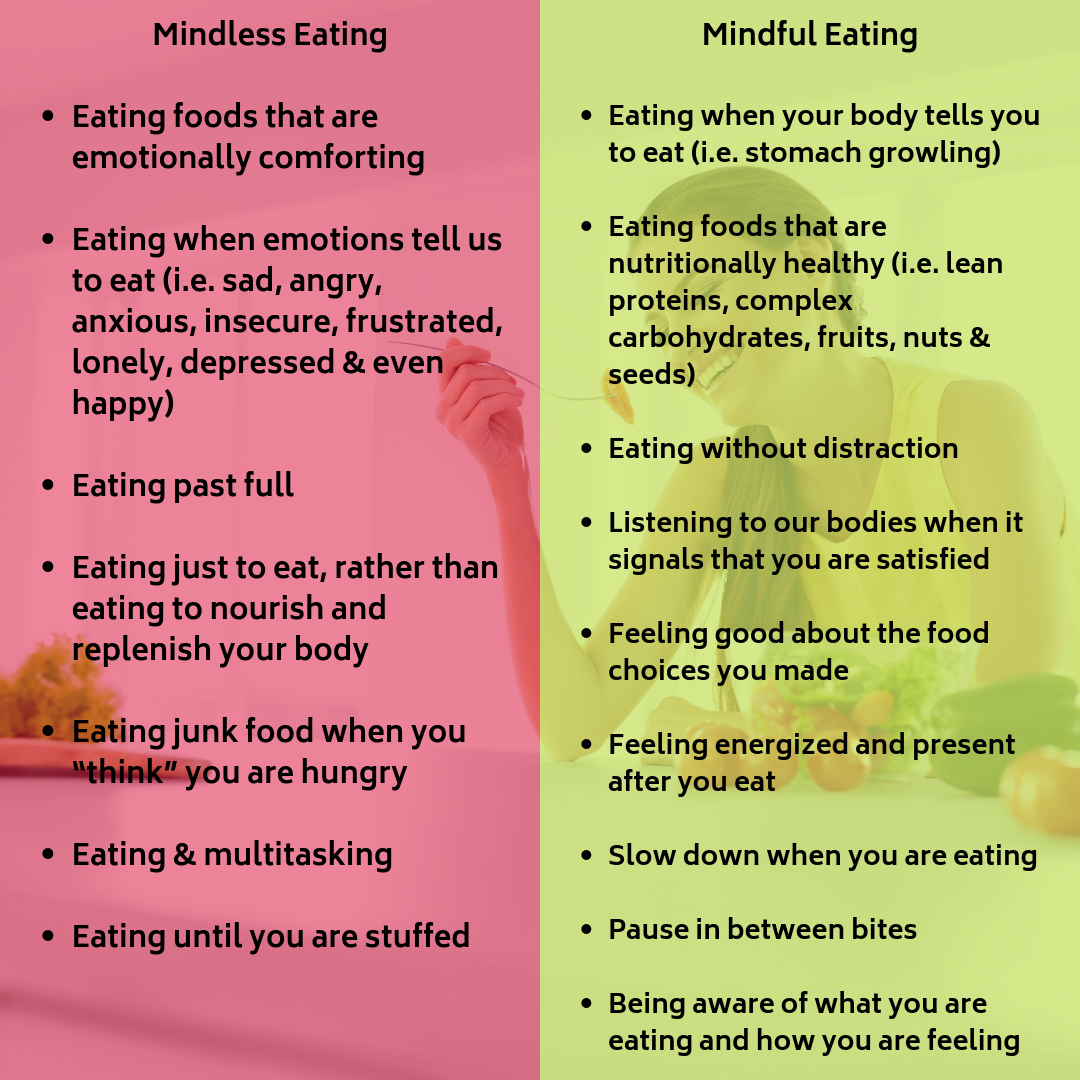|
One way to aid in your recovery from Bulimia is to have on hand several different types of healthy snacks. Not only are healthy snacks the “best option” for snacking but they help in sustaining satiety and greatly reduce the cravings to binge and purge. Choosing snacks full of nutrition will also aid in maintaining a balanced hormonal level so that the highs and lows bulimia brings on are significantly reduced. In the end, choosing to have a healthy snack means choosing “you” over your bulimia.
Here are some examples of satisfying healthy snacks
What makes these just some of the options for nutritional snacks is that they contain the right kinds of proteins, fats, and carbohydrates. Protein- The body needs protein to maintain and replace tissues and to function and grow. Protein is the main building block in the body. Protein is the primary component of muscle, connective tissue, and skin. Fat- Fat gives you energy and helps the body absorb certain vitamins. Fats also provide insulation and protect our organs. Carbohydrate- Carbohydrates are the body’s main source of energy. The fruit, vegetables, dairy and grain food groups all contain carbohydrates. Carbohydrates also provide fiber which helps with constipation, prevents stomach and intestinal problems, and may even help lower cholesterol.
0 Comments
Does healing your gut have anything to do with dieting? With restricting? With eliminating the foods you love? Yes and no.
Your gut is the gateway to your health and actually plays a much bigger role in your journey towards recovering from bulimia than you might think. In fact, 90% of serotonin (your feel good hormone) comes from your gut! Your gut and vagus nerve (connects the gut to the brain) contribute to digestion and serotonin levels. So for instance, when you say you have an upset stomach or leaky gut your mental health takes a hit too- you may feel anxious, stressed, depressed even OCD behaviors may come into play. Of course, what happens next with someone struggling with bulimia is that they tend to gravitate towards a binge so they can fill the void in their stomach or escape any emotion that is uncomfortable such as depression. Gut health is crucial to successfully recovering from bulimia as well as all around mental well-being. When you feel good, you have a higher level of self-empowerment. When you feel good, you make better decisions. When you feel good, you have more energy. When you feel good, you are able to use recovery tools such as therapy, self-help books, meetings etc., more effectively. Certainly seeing a nutritionist or certified health and wellness coach is also beneficial. Here are some simple steps to start working on your gut health:
Certainly there is no single magical remedy to sustain recovery from Bulimia-there are many from the most important which is to work with a professional to others such as participating in support groups.
But one lifestyle that I embrace is eating mindfully and eating healthy and nutritious foods. I believe and have experienced firsthand that eating the right foods has had a profound impact on maintaining my life without the daily struggle of bulimia. Am I advocating a diet? Absolutely not! Am I labeling foods as either “good” or “bad?” Again, absolutely not! Having spent 25 years of my life struggling with Bulimia with all the crazy behaviors that accompanied this disorder, I am 100% convinced that what food choices I make directly affects my entire mind and body, my mental and physical self. So how do you know what is truly healthy and what is not? A little research and applying common sense goes a long way. Start with the basics, take one step at a time and truly take inventory on how you feel both physically and mentally. One place to start is with eating whole foods. Think of whole foods as those that grow in the ground or live in the sea. Eat protein rich foods and limit your intake of sugary foods and refined carbs. Again, this is not a diet, but a lifestyle change with the goal of decreasing the physical and emotional urge to engage in your bulimic behaviors. When you eat a healthy diet and use food as fuel for your body you will begin to shift your relationship with food and your relationship with your bulimic-self. For me, I no longer feel deprived (why can’t I have cookies...) but revived (it feels good making sound choices to nourish my body and mind. My bulimia does not hold the power it once had over me. I feel happy). Eating foods rich in nutrition is a win-win no matter what. But for me the best part of eating well is the absence of the urge to run to bulimia (for whatever reason, good, bad or indifferent). My body feels better and my mental being feels better.
I am delighted to announce that I completed my studies with the Dr. Sears Wellness Institute and am now a Certified Health Coach for both Families as well as for Adults & Seniors. I look forward to sharing more about this in the weeks to come!
Since being enrolled in a nutrition and wellness certification program, I’d like to share a bit of information I learned (yes I am 50 and still learning!) that I think would have been extremely helpful when I was young and struggling with Bulimia.
We all know that food is essential to life. We all have an idea about what are healthy foods and non-healthy foods. But if you are like me, I didn’t fully understand the science behind food and how it interacted with my bulimia, particularly on a mental level. Let's be honest bulimics tend to binge on carbohydrates, sugar and fat like cookies, crackers and ice-cream and not on foods like broccoli and fish. So for now, I’d like to focus on Sugar and the science of how sugar interacts with dopamine. Dopamine is neurotransmitter (one of those chemicals that transmits signals from nerve cell to the brain, and is known as the FEEL GOOD hormone. And importantly, Dopamine controls many functions including behaviors, emotions and cognition. So when a bulimic binges on sugary foods like cookies, candy or pastries the brain produces a huge surge of dopamine, hence a high or rush of pleasure is felt. Of course this doesn’t last and after a short while the body craves sugar all over again. The bulimic continues a cycle the highs and lows of a never ending rollercoaster. To say sugar is never to be consumed is not my point. But, having spent nearly 27 years battling bulimia and now having a plethora of research that has been done on sugar at my fingertips, I clearly see the link between the two. If I, and indeed, my parents had been aware of the fact that me binging on large amounts of sugar (followed by purging) was severely impacting my brain and dopamine regulation and how it was driving me to binge more, then we would perhaps have been able to find workable strategies to overcome this. For a start I would have known that its not just me or my lack of willpower that was pulling me deeper into bulimia but that my mind and body were acting and reacting to the sugar I was consuming. Perhaps my parents could have taken inventory of what they were eating (model behavior) and helped to create a food environment that was more conducive to healthier choices and as such at least start to reduce one element that was causing havoc for me and wasn't delivering any health benefit to the rest of the family either. In a nutshell, accepting that sugar is not good for you is one thing but making available better food choices to your children can actually help in the recovery process of a child that may be suffering from Bulimia and at the same time contribute to everyone’s overall health. Just be mindful of what you eat, what you buy and the examples you are giving to your children. This is not a cure but certainly a powerful tool if monitored by a doctor or dietitian that is helping in the recovery process. Self-Acceptance is a crucial part in one’s ability to live a healthy and happy life. Self-Acceptance is being satisfied with one’s self despite any perceived “weaknesses” and irregardless of past behaviors and choices. So it is no mystery that a child who struggles with bulimia certainly does not have a healthy sense of self. What bulimics tend to do is twist beliefs and behaviors into highly subjective and negative self-rejection.
As parents what steps can be taken to help your child accept him or her self? I believe it starts with taking inventory of yourself and making sure you are being the best “you” you can be. Then you can model positive self-acceptance for your child - children are constantly observing how you act and what you say so you need to be careful what you are projecting. 1- Be conscious of what you say or do: Do you ever say things like:
It is a very lonely life when we don’t like ourselves. By not having a strong sense we are not living our best life and for bulimics this greatly plays into binge/purge cycle. So for parents it is important to take inventory of how you value yourself, what behaviors you exhibit that maybe counterproductive or even toxic and may be directly, if unwittingly, influencing your child who is struggling with bulimia and self-worth. Sadly, eating disorders are the third most common chronic illness among teens. Not only does bulimia, anorexia and binge eating affect roughly 1 in 5 girls but about 25% to 36% of the male population suffer as well. Body image issues have been reported as early as age 6.
Eating disorders affect all races, ethnic groups and professions; from the transgender population even to the military. Eating disorders and body image issues are a complex combination of genetics, environmental factors and even personality traits. They can range from full blown disorders to slight afflictions (real or imagined) to general insecurities. So how does a parent set a good example for their child? What are some ways to approach body image (both negative and positive) within the home? 1-Start with modeling good behavior. So Moms and Dads make sure you are supporting and not undermining your own or your child's self esteem. Do not ask “Do these jeans make me look fat?” or, do not announce, “I am on a diet” or that you cannot eat this or that type of food. “ Instead keep a positive attitude towards your own body. Practice accepting that you are perfect just as you are and encourage your child to do the same. Look to food as a means of nourishment and not whether this particular food is good or bad. Be the example of taking care of yourself in a healthy and balanced way. Obviously making healthy food is a good thing but make sure you are careful of the language you use. 2-Develop good habits. Do you have a habit of putting your own body down? Do you criticize yourself constantly? When you make harsh criticisms of your body whether out loud or silently, you hurt your self-esteem. Not only does this affect you but it affects all relationships you have. Your kids are very attuned to how you feel about yourself and they may well transfer these feelings onto themselves. In order to break a bad habit you must replace it with a healthy one. No one is perfect, this is just a universal fact and what does “perfect” even mean as it is an unattainable state. Striving instead to perfect a positive sense of self is a far better pursuit and this allows good thoughts and habits to flow. So start working today on this two areas and you will build a much better foundation for your children to build their own self-esteem upon. I am not a therapist or counselor, but rather a women who spent 27 years battling Bulimia. I began my battle at the tender age of 13 when just an eighth grader. I had no idea at the time what bulimia was, let alone any kind of body dysmorphic disorder. I was like most teens, just wanting to feel love and a sense of belonging. Like many other sufferers my situation was complicated by chaotic familial circumstances and an environment where healthy forms of communication were absent. This was compounded by my own negative “beliefs” about my self-worth and physical appearance. So although your family and your child’s circumstances may be different from what mine were, the likelihood of there being some commonalities certainly exists. This has been my experience whenever I have spoken to other sufferers and indeed parents too.
Once I achieved recovery after 27 years of horrific self-abuse, I wrote two books so that my struggles could have some positive impact on others and their journey back to health. I have also spoken at conferences, colleges, even hospitals and have been blessed to have had so many other sufferers reach out to me and share their stories. Lately though I have come across more and more parents of sufferers (I guess this is partly because of my age!) and I have been really touched by their personal struggles to understand and help their child. So I decided to dedicated 2019 to focusing all my blog posts and videos on helping parents navigate this journey and be the best partners in recovery they can be for their child. Let’s not underestimate the task parents face because although the child is usually the focus, the reality is that the parents also have to do some introspection and reassessment of their own attitudes, and the environment they have created for their children. I look forward to your feedback as I post. “Though no one can go back and make a brand new start, anyone can start from now and make a brand new beginning” Carl Bard |
AuthorAfter a 25 yr battle with Bulimia I am recovered and dedicated to helping others also win their battles with Bulimia or other Eating Disorders. I have chronicled my struggle, as well as strategies for recovering, in two books and encourage anyone who is struggling to reach out to me confidentially Archives
September 2019
Categories |










 RSS Feed
RSS Feed